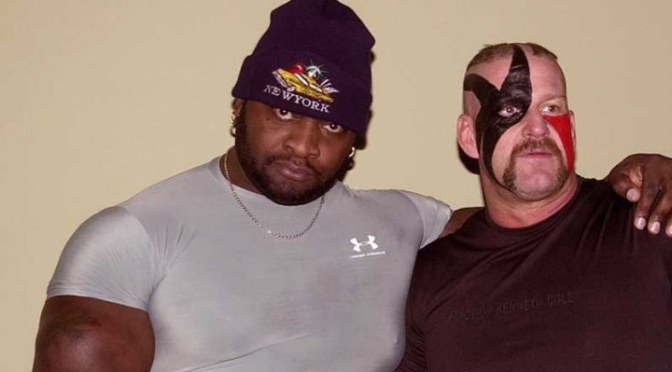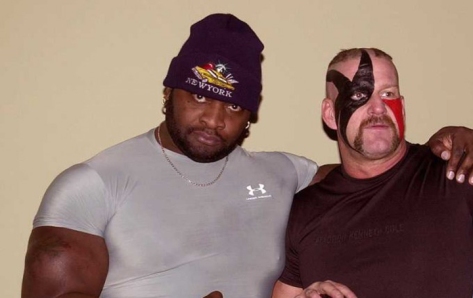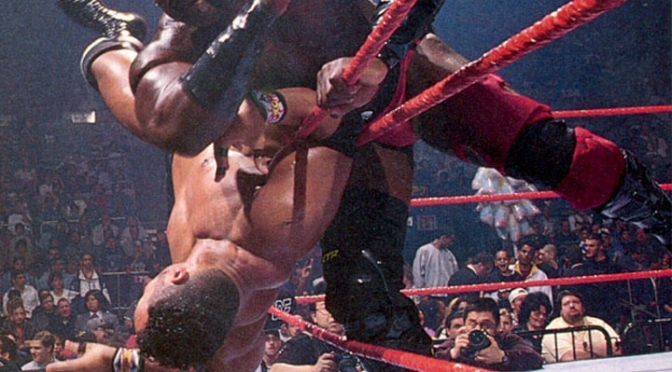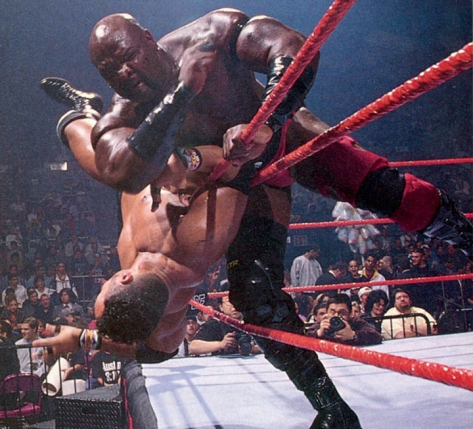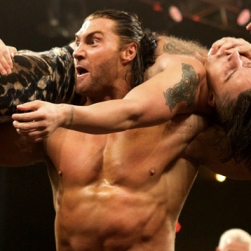It’s #TheShieldWeek at Juice Make Sugar, and we’re talking all things Reigns, Rollins and Ambrose. But like so many young stables that have come and gone before them, each of these guys has something to learn, and room to grow. For Reigns, it could make the difference between being merely good or undeniably great. Thankfully, we’re here to help them same way we would any other athlete: give him tape He Should Watch. And loving our readers like we do, we have some tape You Should Watch of the work that reminds us of his because what’s more fun than old wrestling videos?
He Should Watch
There a very few performers in the history of the industry with the combination of skill and size of Roman Reigns, let alone such a clearly defined identity in the ring. There aren’t many people on earth that can do what Reigns can do, so it’s pretty difficult to find anyone that he could learn from. But, because we promise the best and try to deliver, we scoured far and wide to come up with someone that Reigns could conceivably learn from.
Names like the Ultimate Warrior came to mind. However, given that the basic concept is to “help” these guys become better — not that they would actually read this, but you get the idea — and not “make it so that they will very quickly wear out their welcome”, he didn’t seem like the best choice. After much consternation we finally recognized someone that stayed over with the crowd his entire career, had a similar build and a charisma, and managed to reach his full potential.
That man? Batista.
Now, listen, before you say, WELL WHAT ABOUT THE ROCK? What about him? The Rock, while a great entertainer, doesn’t seem to have nearly the in-ring skills — outside of selling — that Reigns or even Batista had. Rock’s a great storyteller, has enough charisma to fill the largest stadiums in the entire world and is a better than adequate worker, but he’s never been spectacular in any single match or with any single moment. He’s built perhaps the most successful single career in the history of wrestling almost entirely on charm, wit and a connection to the crowd. He is on a different level than Reigns, and while they have similar builds, backgrounds and looks, it seems highly unlikely that Roman Reigns will also end up becoming a A-list movie star.
But, some bit parts as the bruiser or a particularly big and handsome villain in an action movie? Absolutely. And the Hollywood glass ceiling for he and Batista isn’t the only thing the two have in common. They’ve both worked their way up through a faction — in Batista’s case, Evolution — that allowed them to not just hide (and work on) their weaknesses, but develop their strengths.
There may be no greater slow burn in (at least) WWE’s history than Batista’s gradual disenchantment with Evolution. The explosion is unequivocally the best of its kind, and should be studied by the people who study these things into perpetuity:
We want destroyers like Batista and Reigns to be on our “team”. They don’t have be “good” guys — and Batista never ever was — but during much of his run, he was never a “bad” guy. Until he was, and man, when he was, he was as good as anyone has ever been.
If Reigns can figure out a way to move beyond just being a “big dumb animal” — which it appears he has already moved past the “dumb” part — and become an “animal” the way that Batista was, he will find himself — like Batista once did — as the face of the WWE.
You Should Watch
For as incredible as Reigns has been, and how he good he may one day be, he has certain limitations. Not relative to most people, but to the Platonic ideal of what performers of his type can be.
Like Mike Awesome. Awesome, for those who are unaware, was everything anyone could have ever wanted from a big man wrestler. Bigger than Reigns, but smaller than Kane, Awesome had the perfect combination of size, strength and agility. He is perphaps most famous in America for his work in ECW and Masato Tanaka:
But should be known for an exceptionally varied moveset:
And, especially his ability work with any one of any size. That may be his truest gift, the ability to for him to work a 17-minute match against Spike Dudley that makes the smaller guy look like a star without losing an ounce of credibility.
Mike Awesome vs Spike Dudley ECW Title by 2cool4you2
If Reigns can ever make anyone look half as good as Mike made Spike look, he’ll be truly Awesome.



